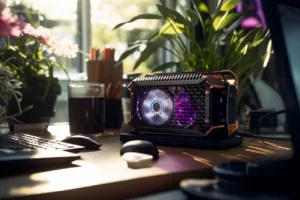The HTML <img> tag is a fundamental element in web development, used for embedding images into web pages. It plays a crucial role in enhancing the visual appeal and overall user experience of a website. In this article, we will explore the various aspects of the <img> tag in HTML, its attributes, best practices, and how to optimize images for the web.
Basic syntax
The basic syntax of the <img> tag is as follows:
html
Here’s a breakdown of the essential attributes:
-
src: Specifies the path to the image file. It can be a local file path or a URL. -
alt: Provides alternative text for the image, which is essential for accessibility and SEO purposes.
Attributes
While the <img> tag can work with just the src and alt attributes, there are several other attributes that can be used to control the appearance and behavior of images on a web page:
| Attribute | Description |
|---|---|
width |
Sets the width of the image in pixels. |
height |
Sets the height of the image in pixels. |
title |
Specifies a title for the image, which appears as a tooltip when the user hovers over it. |
align |
Controls the alignment of the image within the text flow (e.g., left, right, center). |
Best practices
When using the <img> tag, it’s essential to follow best practices to ensure your web pages are accessible, load quickly, and provide a great user experience:
- Always provide meaningful
alttext to describe the image’s content. - Optimize images for the web by compressing them to reduce file size while maintaining quality.
- Use the
widthandheightattributes to specify image dimensions, preventing layout shifts as the page loads. - Ensure images are relevant to the page content and add value to the user experience.
- Consider responsive design principles to adapt images for different screen sizes and devices.
Faqs
What is the purpose of the alt attribute?
The alt attribute provides alternative text for images, which is crucial for accessibility. It helps screen readers describe the image to visually impaired users and is used by search engines for SEO.
How can I align images within text?
You can use the align attribute to control the alignment of images within the text flow. For example, align="left" will align the image to the left of the text, while align="right" will align it to the right.
Why is image optimization important?
Image optimization is essential to ensure fast page loading times and a smooth user experience. Optimized images reduce bandwidth usage and prevent long loading delays.
Can I use the <img> tag without the alt attribute?
While it’s technically possible, it’s strongly discouraged. The alt attribute is crucial for accessibility and SEO, and not providing it can result in a poor user experience and lower search engine rankings.
Vezi și:







